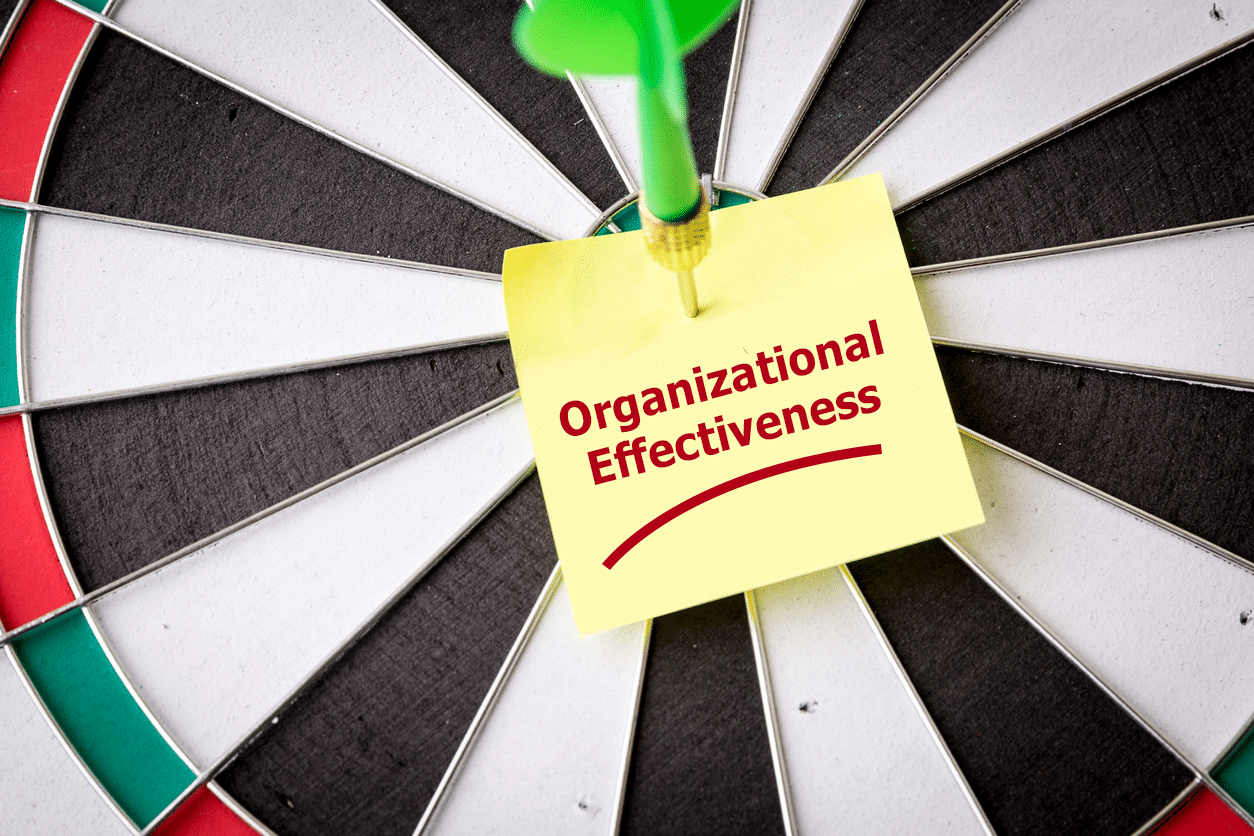Why Organizational Effectiveness Matters
To be good at what you do as an organization, certain things need to be in alignment. Whether your organization is in the healthcare industry, retail, or a service-based niche, your ultimate business goal is to serve your customer or client as effectively as possible. To do so, you must master the art of maximizing organizational effectiveness.
Of course, as an organizational leader, you know reaching organizational effectiveness is a multi-faceted puzzle that requires strategy, team building, systems optimization, keen insight, and constant re-evaluation.
Each of your initiatives must be aligned with your organizational goals, values, and purpose in order to have the most positive impact on the people you serve.
These five steps form the roadmap to helping you ensure that your organization is, in fact, performing at its best to meet your clients’ needs.
- 1. Why Organizational Effectiveness Matters
- 2. Article Highlights
- 3. Strategy #1: Define How, Where & When Work Gets Done
- 4. Strategy #2: Make Effective Decisions
- 5. Strategy #3: Build Effective Strategies to Yield Positive Results
- 6. Strategy #4: Define Your Needs & Hire the Best
- 7. Strategy #5: Commit to Ongoing Learning & Improvement
- 8. Conclusion
- 9. Ready to Talk?
- 10. Related Articles
Article Highlights
-
Clear organizational goals and alignment are the foundation for driving meaningful progress and maximizing effectiveness.
-
Building strong leadership at all levels empowers teams and fosters accountability across the organization.
-
Streamlined workflows and efficient processes reduce waste, boost productivity, and improve overall outcomes.
-
Data-driven decision making helps leaders identify areas for improvement and track measurable success.
-
A culture of continuous improvement ensures organizations remain adaptable, resilient, and growth-oriented over time.
Strategy #1: Define How, Where & When Work Gets Done
Effective organizations define the best conditions for how, where, and when work gets done. There are three aspects to consider when outlining these conditions:
- Workplace Culture
- Individual Behaviors
- Intentional Transformational Change
Having a strong culture supports improvement by ensuring that the right people are in the right places at the right time. Essentially, your organizational culture should support the needs of those you are serving.
By clearly describing your ideal organizational culture and communicating those values and ways of behaving to your team, you can ensure that your entire organization is working towards your common goals and overarching mission.
If there is ever a time when a team member steps outside of the parameters of your established workplace culture, having it clearly documented and regularly communicated gives you an external point of reference to help steer your employee’s behavior back on course.
Once you have detailed how, where, and when work gets done within the context of your organizational culture and the individual behaviors required to reach your goals, you can then focus on shaping the organization for maximum organizational effectiveness.
Strategy #2: Make Effective Decisions
Effective leaders make the best decisions for their organizations. The best decisions are made quickly and are communicated actively so that they can be executed excellently by your staff.
If you – as your organization’s leader – are not nimble and able to adjust to factors such as market trends or client needs, then your organization can easily get off track and lose sight of how to be the most effective organization. Therefore, developing your decision-making skills to a point where you can make quick decisions that are accurate is absolutely key.
Once those decisions are made, you must also have the systems in place to communicate them throughout the organization to those who are affected so that all involved individuals and departments are on the same page and can execute well.
A great staff will also be able to follow through. In other words, rather than simply taking direction and acknowledging a decision has been made, effective staff are able to make the micro-decisions to put actions in place that will bring the leadership decisions to fruition.
Strategy #3: Build Effective Strategies to Yield Positive Results
In order to truly maximize organizational effectiveness, you must have solid strategies in place that are designed to yield positive results. Such effective strategies require you to define your organization’s goals, communicate them effectively across the organization, and then determine the most optimal path to achieving success.
If you clearly define what your goals are and how your organization is going to get there, your whole team will be able to triage tasks by prioritizing the most important projects and saving other, less goal-oriented tasks for later.
If the goals have been set, the strategies have been well-defined, and the communication process is effective, then it is much easier for workers and leaders to lessen their loads because their focus is united and focused on the projects of greatest value to the organization and to clients.
It is when the goals, communication, and effective strategies for project and task management align that organizations begin to experience true transformation and progress.

Strategy #4: Define Your Needs & Hire the Best
Once you, as your organization’s leader, have mastered the first three steps, the next goal is to support your initiatives with the best staff members and talented professionals. When strong leadership is complemented with expert staff, your organization will inevitably reach its goals.
Skilled organizational leaders have excellent hiring practices and train their department and team leaders to proactively implement those same hiring practices.
Many organizations begin the hiring process once a need has already arisen. In that situation, the organization is then scrambling to find the right person to fill that empty role. Meanwhile, tasks are being missed or overlooked while other staff members try to carry the weight of the unfilled role.
Effective leaders anticipate the need for additional staff members and begin the recruitment and hiring process before the need for support is overwhelming existing staff members.
Even if hiring is a process handed off to your human resources (HR) department, effective leaders ensure hiring does not happen in a vacuum.
There must be clear and ongoing communication about the emerging needs for new staff, the specific task- and skill-based needs of the role to be filled, and how HR can best support the individual departments to hire for that role.
Strategy #5: Commit to Ongoing Learning & Improvement
Even the most talented and driven leaders who are supported by the most effective staff have new skills, techniques, and information to learn. The world is constantly evolving.
In particular, the population your organization serves is in a constant state of flux. Therefore, to maximize organizational effectiveness, you must commit yourself to continual learning and improvement.
Not only does client-focused learning maintain your organization’s edge in the marketplace, but also by demonstrating your commitment to growth and improvement you will build customer loyalty.
To identify where your organization can benefit most from learning and improvement, the most effective leaders implement a system of internal reflection.
The internal reflection process is an objective examination of determining what is working well, what is not working well, what external changes are going to impact your operation or your clients, and how can your organization strengthen its internal resources to be better in the future.
Many organizations struggle to keep this internal reflection piece truly objective. Naturally, there are numerous other factors that are considered when determining whether specific operations are or are not working – many of which are irrelevant to truly effective decision-making, such as personal feelings about projects, clients, and team members.
Therefore, to remain objective and attain organizational effectiveness, many leaders choose to bring in third-party consultants to evaluate and optimize systems on a regular basis.
Conclusion
Effective leadership starts at the top. From understanding your own strengths and weaknesses as a leader, to getting crystal clear on your organization’s goals, mission, and culture, to building effective teams that can execute projects while constantly learning and improving, everything that brings your organization closer to maximum effectiveness starts with you.
If you believe your organization would benefit from consultation services from experts in maximizing organizational effectiveness, get in touch with us. We would be glad to meet with you to discuss your operation, your goals, the clients you serve, and how you can continually achieve more.
Ready to Talk?
Related Articles

The Basics of Strategic Planning for Healthcare Organizations

Navigating AHCCCS Changes for Behavioral Health


